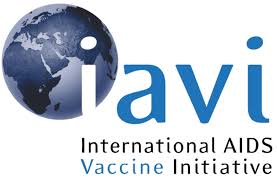 Statement from IAVI on World AIDS Vaccine Day 2014
Statement from IAVI on World AIDS Vaccine Day 2014
Together, We Can Achieve a World Without AIDS
Do you remember the world before HIV/AIDS? Where will you be when the shadow of this disease is finally gone?
We have seen major advances in preventing and treating HIV/AIDS – but millions of people are still becoming infected and dying. In East and Southern Africa, 10.5 million children have lost one or both parents to HIV/AIDS. As the number-one killer of women of reproductive age, this epidemic takes an enormous human toll on individuals, families and communities, and an enormous economic toll in terms of healthcare costs and lost productivity.
For every three people put on treatment, four other contract HIV. And even if sufficient funding materializes to maximize access and adherence to existing treatment and prevention approaches, “best case” estimates are that low- and middle-income countries will still see more than half a million new infections a year come 2050.
Adding and successfully implementing a vaccine with 60-percent efficacy could reduce new HIV infections by 25 percent in its first decade and by almost half in 25 years, averting up to 22 million infections, according to modelling by IAVI, AVAC and Futures Institute.
Science is closing in on an AIDS vaccine. Researchers daily learn more about how HIV changes in the body and varies by geography; what the potential targets are on this highly elusive and mutating virus; how antibodies and our own T-cells could help prevent and even clear HIV infection, and how different vectors might be used to make a future vaccine more effective and longer-lasting. Studies are being prepared to build on the landmark RV144 vaccine trial; other exciting breakthroughs are advancing development of second-generation vaccines with even higher, longer-lasting and broader efficacy, and many new candidates are entering early development.
A vaccine will be transformative for so many people, cutting through barriers of stigma and gender inequity that stand between many individuals and the power to protect their own health. Yet global spending on AIDS vaccine research and development has been flat in recent years, despite the promising scientific advances. Sustained commitment will be critical to translating today’s and tomorrow’s promising science into a rich pipeline of vaccine candidates with the best chance of success.
This World AIDS Vaccine Day, we stand proudly beside our many partners and supporters, and together reaffirm our commitment to finding a vaccine that will help rid the world of HIV/AIDS.
Please refer to the below link as this contains messages from IAVI CEO Margie McGlynn and Chair of the IAVI Board Dr. Alex Godwin Coutinho which can be found on YouTube. https://www.youtube.com/watch?v=3dmyerxuK84
Learn more at www.iavi.org
